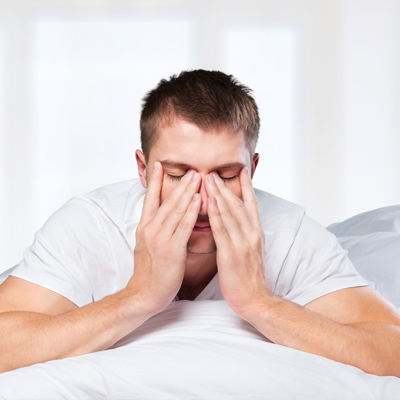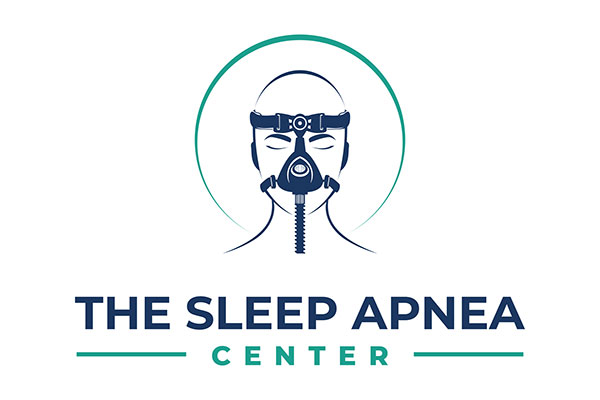Breathing DisordersRockville, MD
Breathing disorders can significantly impact health and quality of life, resulting in disrupted sleep and related health complications. A sleep dentist can help identify and treat certain breathing disorders, providing non-invasive therapies that improve both breathing and sleep quality. If you are experiencing symptoms of a breathing disorder, consult a sleep dentist for help getting back to a restful sleep.
At The Sleep Apnea Center, we focus on managing conditions like obstructive sleep apnea and related disorders that contribute to poor sleep and overall health issues. Contact our Rockville office at 301-279-2600 to schedule an appointment.
What are Breathing Disorders?
Breathing disorders involve disruptions to normal airflow that can lead to poor sleep quality, fatigue, and other health complications. These disorders often arise from structural issues in the airway, where obstructions make breathing difficult during sleep. A sleep medicine dentist specializes in non-invasive treatments that address such breathing problems, helping patients to enjoy restful, uninterrupted sleep.
Conditions commonly treated by a sleep dentist include obstructive sleep apnea (OSA) and sleep-related breathing disorders that impact airflow during sleep. OSA, for instance, is characterized by repeated episodes of airway blockage, leading to oxygen deprivation and frequent wake-ups throughout the night. When left untreated, such breathing disorders can increase the risk of cardiovascular disease, metabolic problems, and mental health conditions, making early intervention essential.
"A sleep medicine dentist specializes in non-invasive treatments that address such breathing problems, helping patients to enjoy restful, uninterrupted sleep."
Signs and Symptoms of Breathing Disorders
Patients experiencing breathing disorders may notice various symptoms that disrupt nighttime rest and daily functioning. Early recognition of these signs can help individuals seek the proper treatment, potentially reducing long-term health effects. Symptoms that may indicate a breathing disorder include:
- Frequent Snoring. Persistent snoring, especially loud or disruptive, may indicate an airway obstruction
- Gasping or Choking During Sleep. Episodes of waking up gasping for air or choking can be a sign of OSA
- Daytime Fatigue and Sleepiness. Excessive daytime sleepiness often results from frequent nighttime awakenings due to breathing issues
- Morning Headaches. A lack of oxygen during the night may lead to morning headaches or a “hungover” feeling upon waking
- Dry Mouth or Sore Throat in the Morning. Breathing through the mouth due to an obstructed airway can cause dryness or discomfort
Recognizing and discussing these symptoms with a sleep dentist is the first step toward an effective treatment plan that can improve both nighttime breathing and daytime energy levels.
"Early recognition of these signs can help individuals seek the proper treatment, potentially reducing long-term health effects."
Diagnosing Breathing Disorders
A sleep dentist begins the diagnostic process for breathing disorders with a comprehensive evaluation. During the initial appointment, the dentist will review the patient’s medical history, sleep habits, and any symptoms noticed. The dentist may also ask if the patient has a family history of sleep apnea or breathing problems.
Patients may undergo an at-home sleep test or other evaluations to gain a clearer picture of how breathing patterns impact their sleep. An at-home sleep test measures oxygen levels, airflow, and breathing pauses, providing valuable data that helps the sleep dentist diagnose conditions like obstructive sleep apnea accurately. Once diagnosed, the sleep dentist can develop a treatment plan based on the individual’s needs, targeting the root causes of their breathing issues to improve their sleep and quality of life.
"An at-home sleep test measures oxygen levels, airflow, and breathing pauses, providing valuable data that helps the sleep dentist diagnose conditions like obstructive sleep apnea accurately."
Types of Breathing Disorder Treatment from a Sleep Dentist
Treatment for breathing disorders from a sleep dentist offers several important benefits. By addressing structural causes of airflow disruptions, such treatments can help patients achieve restful sleep, leading to improved energy levels, better health, and overall wellness. Common treatments from a sleep dentist include:
- Oral Appliance Therapy. Custom-fitted devices help keep the airway open by adjusting jaw position, reducing obstructions, and enhancing breathing during sleep
- Night Guards. Provide cushioning and support, protecting the jaw and reducing muscle tension for patients with bruxism that aggravates breathing issues
- Lifestyle Recommendations. Guidance on lifestyle adjustments that further support breathing health, like weight management or positional therapy
These treatments not only improve airflow but also reduce symptoms like snoring, daytime sleepiness, and frequent awakenings. Ultimately, breathing disorder treatment from a sleep dentist offers a safe, effective alternative to invasive procedures and promotes long-term health benefits.
"By addressing structural causes of airflow disruptions, such treatments can help patients achieve restful sleep, leading to improved energy levels, better health, and overall wellness."
Follow-Up Care
After initiating breathing disorder treatment, ongoing follow-up care is key to ensure lasting results. Patients must use their oral appliance as directed, clean it regularly, and attend follow-up appointments. This commitment helps ensure the device remains effective and comfortable over time.
Follow-up appointments are an opportunity to evaluate any changes in the patient’s symptoms or sleep quality, allowing the sleep dentist to make necessary modifications to the treatment plan. By maintaining these follow-up practices, patients can support sustained improvement in their breathing, which translates to better sleep quality and overall health.
"Regular follow-up appointments allow for adjustments, ensuring ongoing relief and improved sleep quality."
Questions Answered on This Page
Q. What breathing disorders can a sleep dentist treat?
Q. What are the symptoms of breathing disorders?
Q. How does a sleep dentist diagnose breathing disorders?
Q. What treatments does a sleep dentist provide for breathing disorders?
Q. What follow-up care is needed after breathing disorder treatment?
Breath easy and sleep easy today
If you are struggling with, a breathing disorder the disrupts your sleep consider consulting with a trusted sleep medicine dentist. Contact The Sleep Apnea Center at 301-279-2600 to schedule your consultation and start sleeping better today.
Frequently Asked Questions
Q. What breathing disorders can a sleep dentist treat?
A. A sleep dentist specializes in treating breathing disorders like obstructive sleep apnea, which disrupt normal breathing patterns and cause sleep disturbances. These conditions often involve the airway becoming partially or fully blocked during sleep, leading to frequent awakenings and poor-quality rest. By addressing these airway obstructions, a sleep dentist helps patients achieve more restful and continuous sleep.
Q. What are the symptoms of breathing disorders?
A. Common symptoms of breathing disorders include loud snoring, frequent gasping or choking sounds during sleep, and excessive fatigue during the day. These symptoms often result from frequent interruptions in breathing, causing poor sleep quality. Individuals may also experience morning headaches, difficulty concentrating, and mood changes due to lack of restorative sleep.
Q. How is a breathing disorder diagnosed?
A. Often, diagnosing a breathing disorder begins with a sleep assessment, which may include a home sleep test that tracks oxygen levels, breathing patterns, and airflow. The test records data throughout the night to identify breathing pauses and other disruptions. Once analyzed, this information helps a sleep dentist determine the best treatment approach based on the severity of the disorder.
Q. What treatments are available from a sleep dentist?
A. A sleep dentist can offer several treatments for breathing disorders, including oral appliance therapy, which repositions the jaw to keep the airway open. Other options may include customized night guards and lifestyle recommendations to support healthy sleep. Each treatment is tailored to the patient’s needs, aiming to reduce airway blockages and improve breathing throughout the night.
Q. How do I care for my oral appliance at home?
A. To care for your oral appliance, clean it thoroughly each day to prevent buildup and ensure it remains in good condition. Store it in a protective case when not in use, and wear it nightly as directed to get the best results. Regular follow-up appointments with your sleep dentist are also important for making necessary adjustments and monitoring progress.
Definition of Sleep Apnea Terminology
- Breathing Disorder.
- Conditions that disrupt normal airflow, affecting sleep quality and overall health.
- Obstructive Sleep Apnea (OSA).
- A disorder causing repeated airway blockage during sleep, leading to oxygen deprivation and frequent awakenings.
- Home Sleep Test.
- A diagnostic tool used to assess breathing patterns and oxygen levels during sleep.
- Oral Appliance Therapy.
- A treatment using a custom-fitted device to keep the airway open and improve airflow.
- Bruxism.
- The habit of teeth grinding or clenching, which can exacerbate breathing problems.
- Night Guard.
- A dental device used to protect teeth and alleviate jaw tension during sleep.
- Positional Therapy.
- A treatment approach that involves sleeping in a position that minimizes airway obstruction.
- Snoring.
- A sound caused by partially obstructed airflow during sleep, often a symptom of a breathing disorder.
- Oxygen Desaturation.
- A reduction in blood oxygen levels due to interrupted breathing.
- Jaw Misalignment (Malocclusion).
- Improper alignment of the jaw that can contribute to breathing difficulties.
Contact Us
The Sleep Apnea Center is located at
350 Fortune Terrace #101B
Rockville,
MD 20854

